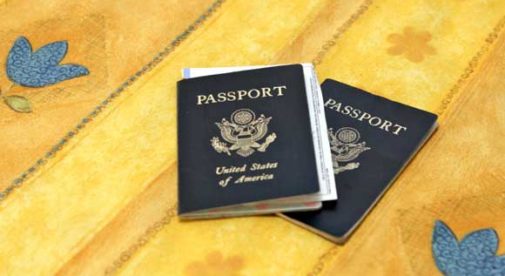We all want to save taxes, make ourselves less of a target to sue-happy lawyers, and generally enjoy more freedom to live as we want to.
You’ll be happy to hear, there are some well-established ways that you can preserve and protect your assets right now. Today, I’ll share three of them with you.
To be straight with you, the strategies I’ll discuss aren’t flashy. They aren’t secrets that only I know and can share. These are proven asset protection strategies that I’ve used for nearly three decades in practice. Why? Because they work.
The right ways to protect your assets do exactly what they are supposed to do: protect you—without exposure to additional risks that, ironically, can be worse than the problem it was supposed to fix.
1. Move Your Assets Offshore
Mitt Romney, Google, and hundreds of thousands of other high net-worth individuals and businesses get it: Substantial benefits exist for investing and doing business internationally.
While the U.S. has the world’s largest markets, more than half of the world’s stock investment opportunities (by capitalization) are in other countries. In many cases, you can’t purchase these securities through a U.S. broker.
The prudent use of foreign structures, contracts, and relationships enhances your ability to protect your wealth from domestic legal threats, including judgments, civil forfeiture, business failure, divorce, currency controls, repressive legislation, and political instability.
International investments offer immense practical privacy advantages. Since your money is outside the U.S., it becomes virtually invisible to domestic information brokers and private investigators.
International investments expose your portfolio to foreign currencies and can protect against the falling dollar. This is important because in recent decades, the U.S. dollar has fallen dramatically in value.
2. Get Legal Residence in a Country You Wouldn’t Mind Living in
If you’ve moved your assets offshore, it’s time to look at how to protect yourself so you can’t be forced to give up your assets. That potentially means moving yourself (and your family) offshore too.
Even if you don’t plan to leave the U.S. anytime soon, finding a “just in case” country is a prudent safeguard. If economic or political conditions completely fall apart and you want to leave, having legal residence in a suitable offshore jurisdiction provides a valuable “insurance policy.”
In most cases, you can qualify for residence (although not the right to work in the country) by either making an investment or demonstrating a minimum guaranteed pension payment. Residence rights may be purchased in some countries (like Panama, for example) by making an investment of $80,000 or more in real estate or other assets. A guaranteed pension payment of $1,000 or more may also qualify you for residence.
What should you look for when choosing a suitable second residence? The most important factor is whether you (and your family if applicable) enjoy spending time there. But there are numerous other considerations including the ability to work or start a business, property rights, and if and how your tax situation will be affected.
3. Get a Second Passport
If a backup residence is a strong insurance policy for whatever happens, a second passport is the ultimate in personal protective insurance.
The biggest benefit of this asset protection strategy is the freedom it gives you to travel internationally if your primary passport is lost or stolen or if the issuing government confiscates or refuses to renew it.
Besides the freedom of travel, there are plenty of other benefits of second citizenship and the passport that comes with it. It gives you the right to reside in the country that issued the passport, and possibly other countries too; provides you with the opportunity to travel to countries blacklisted by the government that issued your primary passport; avoids disclosing your primary nationality should you ever need to keep that a secret for any reason.
You may qualify for a second citizenship and passport by ancestry, marriage, religion, or extended residence in another country. Also, a handful of countries offer “instant” citizenship in return for an investment or contribution.
Image: ©iStock.com/sjharmon
Get Your Free Report on the World’s Best Places to Retire:
Learn more about the best places in the world to retire in our daily postcard e-letter.
Simply enter your email address below to sign up for our free daily postcards and we’ll also send you a FREE report on The World’s Top 10 Retirement Havens.


